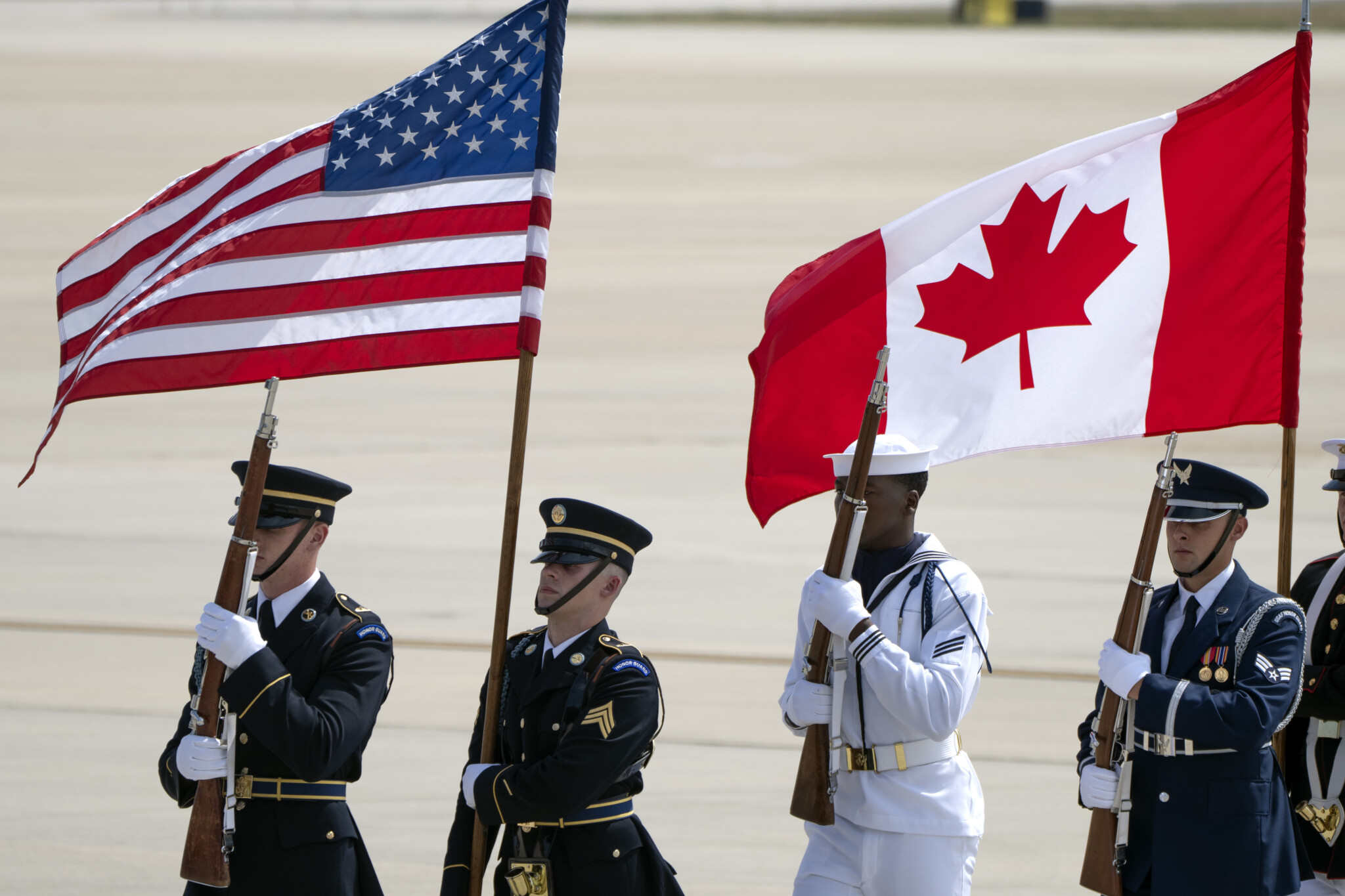‘It cannot be business as usual’: Greg MacNeil on why increasing defence spending could help Canada avoid Trump’s trade war
In this episode of Trump Trade War, The Hub’s publisher Rudyard Griffiths speaks with Greg MacNeil, partner at NorthStar Public Affairs, to discuss the future of Canada’s defence spending targets.
To read Greg’s full analysis, click here.
Key points:
- Single point of accountability: MacNeil argued that the prime minister must take direct responsibility for defence spending, making it a top priority. “The single point of accountability should be the prime minister,” he said, emphasizing that without high-level leadership, defence spending will continue to lag.
- Streamlining procurement: Canada’s procurement process is notoriously slow and bureaucratic, often delaying critical defence projects. MacNeil called for urgent reforms to speed up procurement while maintaining accountability. He warned against relying on last-minute spending sprees, as seen during the Afghanistan War, and instead advocated for long-term planning and investment in domestic capabilities.
- Balancing domestic and international sourcing: While Canada should prioritize domestic defence production, MacNeil acknowledged that reaching the 2 percent target quickly will require sourcing some equipment from international partners. He pointed to successful programs like the National Shipbuilding Strategy and the munitions supply program as examples of how Canada can build sovereign capabilities over time.
In the latest episode of Trump’s Trade War, Greg MacNeil, a partner at North Star Public Affairs, outlined a bold 100-day plan for Canada to meet its NATO defence spending target of 2 percent of GDP. With the Trump administration pressuring Canada to increase its defence spending, MacNeil’s proposal offers a roadmap for rapid action while addressing long-standing challenges in Canada’s defence policy and procurement processes.
MacNeil began by highlighting Canada’s current defence spending, which stands at 1.4 percent of GDP, well below the NATO target of 2 percent. While Canada’s defence budget in absolute terms is substantial, MacNeil emphasized that the country has consistently fallen short of its commitments to its allies. “We have a number of procurement processes in place that prevent speedy decisions [from being] made,” he said, adding that this approach is no longer tenable in the face of growing geopolitical threats and pressure from the U.S.
On procurement, MacNeil acknowledged the need for checks and balances but stressed that the current system is too slow and cumbersome. He called for urgent reforms to speed up the acquisition of critical military equipment, such as submarines and munitions, while avoiding the pitfalls of rushed spending seen during past conflicts like the Afghanistan War. “[We need to] set something up so that we have our own domestic capabilities and can rely a little bit more on ourselves,” he said.
MacNeil also highlighted the potential economic benefits of increasing defence spending. By investing in domestic defence production, Canada could create jobs and stimulate economic growth while reducing its reliance on foreign suppliers. He pointed to programs like the National Shipbuilding Strategy, which has begun to bear fruit after more than a decade of investment, as a model for building long-term sovereign capabilities.
However, MacNeil acknowledged that reaching the 2 percent target quickly will require sourcing some equipment from international partners. He suggested that Canada could collaborate with European allies on projects like the submarine program, which is unlikely to be built domestically in the short term. “We’re going to have to go offshore to get some of this equipment,” he said, emphasizing the need for a balanced approach that combines domestic investment with strategic international partnerships.
Generative AI assisted in the production of this story. If you are quoting from or referencing this episode, please refer to the audio to verify.



